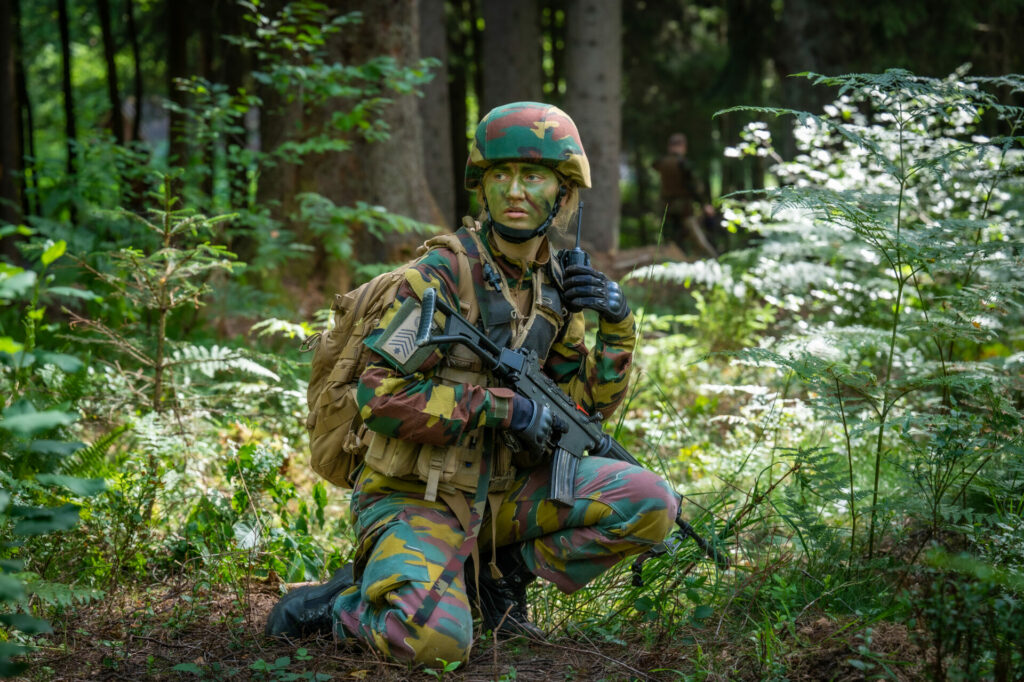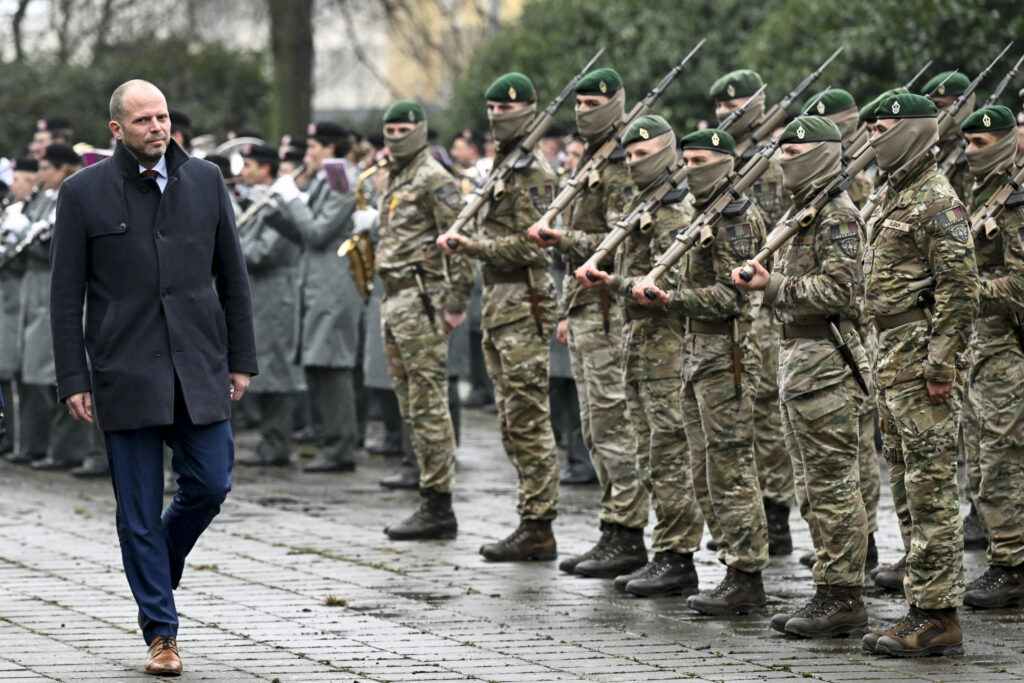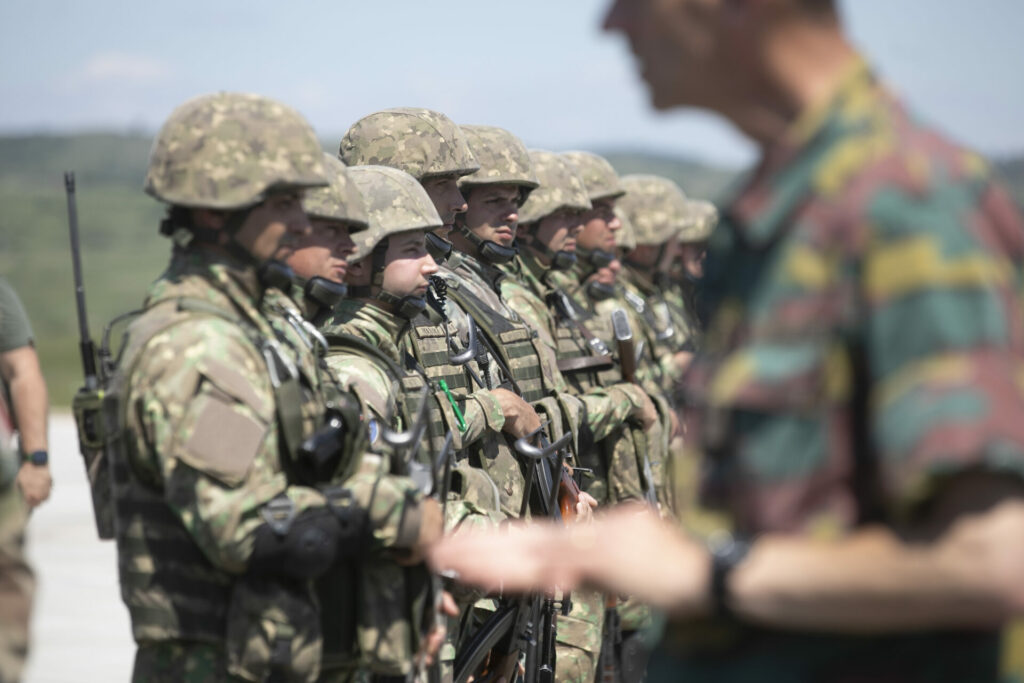With geopolitical tensions reshaping the world around Europe, increasing military spending is no longer negotiable. But with Belgium's economy ailing and widespread fears about inflation undermining living standards, the Government will need to be judicious in its defence investments.
The new Minister of Defence Theo Francken (Flemish separatists N-VA) has announced several measures to beef up the sector, not only in terms of equipment but also personnel. Last week he made headlines by announcing a voluntary national service for young Belgians. But whilst this was met with mixed reactions in the public sphere, what does the military itself make of the plans?
The Brussels Times asked the military union ACMP-CGPM for their take.
Is the army generally pleased with the changes announced by the new Government?
The question of whether the Belgian armed forces are satisfied with Prime Minister De Wever government's intentions must be put to the top brass themselves.
The military union ACMP-CGPM believes that there are both positive and negative points for the Belgian Defense in the government agreement. On the plus side is the increase in the defense budget and the extensive investment program in new weapons systems – things that are absolutely necessary as a result of the precarious geopolitical situation and the decades of neglect of the Belgian military.
Then again, more attention must be paid to the precarious situation of the workforce, namely declining numbers and large shortages in technical jobs, and to the abominable state of the infrastructure (barracks, recovery sites, training facilities).

Princess Elisabeth at a summer camp of the Royal Military School. Credit: ERM-KMS / Belga
What are the Army's priorities for spending?
The Arizona Government is prioritising investment in new weapon systems and support systems, namely: 14 additional F-35s, an additional frigate, heavy transport helicopters, anti-aircraft defense, special forces aircraft, additional logistics equipment (trucks, mobile repair stations...), additional howitzers, unmanned aerial vehicles for sea warfare, air drones and systems for protection against the drone threat, medical evacuation means and field hospitals.
Are you confident that the announced spending commitments will have a positive impact?
The goal is to increase Belgium's defense spending to 2% of GDP by 2029. However, the precarious geopolitical situation, President Trump's statements and pressure from NATO will necessitate an acceleration of this budget trajectory. So the 2% will have to be reached earlier than 2029 and a new spending norm of at least 3% GDP will be inevitable.
The question is whether this will be feasible for our country, as the fiscal situation is very precarious given the large government deficit. To be able to spend at least 2% of GDP annually on defense by 2029 at the latest – and preferably sooner – the De Wever government is counting on €4 to €4.5 billion annually in additional defense spending.
Of that, about a €1 billion must come from the regular budget and another €3 billion or so from a defense fund, to be established. But both forms of financing come with risks and great uncertainty.
The defense fund will be part of the federal investment company FPIM, which will cover a number of government holdings. What these are has not yet been decided. The proceeds from that fund should come from selling government holdings and from the dividends that the government holdings should generate.
In any case, the sale of government holdings does not constitute structural funding for our future military spending. A sale might fund that defense fund sufficiently to raise defense spending for a number of years, but those proceeds will be a one-off. Raising military spending, however, is a structural effort that will continue well beyond 2029. Creating a structural fund that can sustain a higher defense budget for at least the next few years is a major challenge for De Wever's government.

Defence Minister Theo Francken visits the Defense Headquarters in Evere, Tuesday 11 February 2025. Credit: Belga/Dirk Waem
Moreover, Defense Minister Francken admits that the fund will not be sufficient to continue meeting defense commitments: the regular defense budget must also be increased.
In addition to the €3 billion from the defense fund, the De Wever government is already counting on almost €1 billion from the regular budget to finance extra defense. It hopes that the European Commission will not take this into account when assessing the Belgian budget. But it is unclear whether Europe will turn a blind eye only to defense spending above 2% of GDP, or to all additional defense spending. The latter seems unlikely.
Moreover, that money may have to be borrowed and will come on top of Belgium's already hefty mountain of debt.
Minister Francken has announced plans to invite young Belgians to carry out military service: does the Army welcome this?
His decision has been met with mixed feelings within the Army. On the one hand, it would allow the territorial reserve to be better developed – something that is necessary to protect Belgium's critical infrastructure in the face of Russia's hybrid warfare.
On the other hand, this initiative also poses additional challenges for the military. In particular, extra infrastructure, instructors and equipment would be needed to train these volunteers.
Public opinion on this decision is still unclear. If the measure is accepted and the early results are positive that might encourage more to take part. But some have speculated that the military will make up for shortcomings in Belgium's education system, by instilling a sense of discipline and respect. This is not the responsability of the Defence sector.

